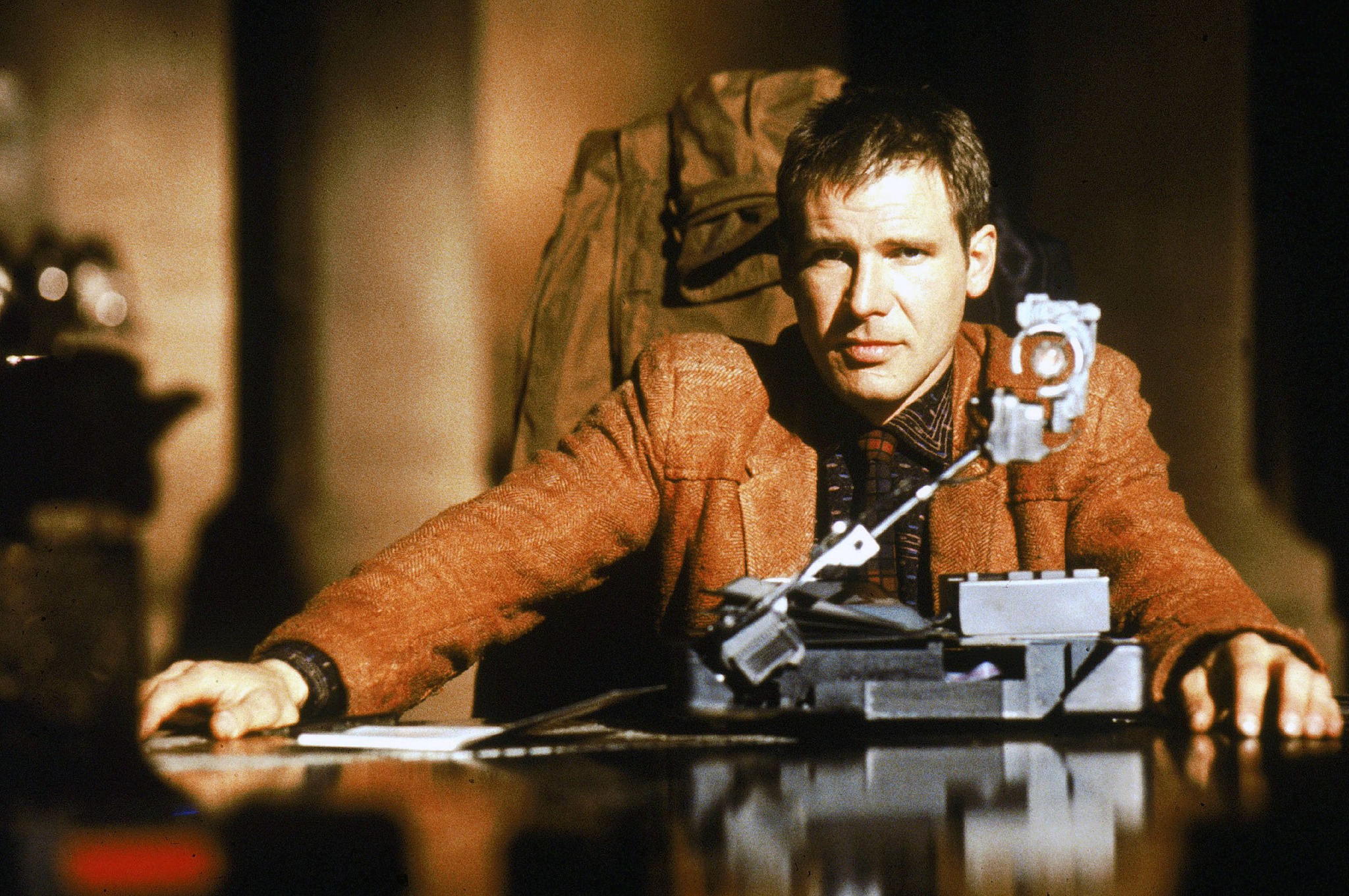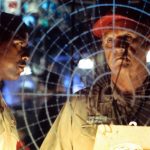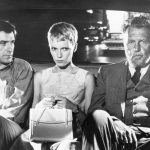“Blade Runner” (1982)

Ridley Scott’s Blade Runner, released in 1982, stands as a monumental work in the science fiction genre, both for its innovative visual style and its profound philosophical inquiries. Based on Philip K. Dick’s 1968 novel Do Androids Dream of Electric Sheep?, the film ventures into a dystopian future where the lines between human and machine blur, and it examines what it means to be truly alive.
Set in a sprawling, neon-lit Los Angeles of 2019, Blade Runner presents a world of high-tech dystopia and societal decay. The film’s visual style, crafted by legendary cinematographer Jordan Cronenweth, is iconic for its dense urban landscapes, perpetual rain, and vibrant yet grim color palette. The architecture and atmospheric conditions create a sense of claustrophobic futurism, effectively immersing the audience in a world where technology and environmental degradation are deeply intertwined.
At the heart of the narrative is the character of Rick Deckard, portrayed by Harrison Ford. Deckard is a “Blade Runner,” a special police operative tasked with hunting down and “retiring” replicants—bioengineered beings created to serve humans. The replicants in question, particularly Roy Batty (Rutger Hauer), Pris (Daryl Hannah), and Zhora (Joanna Cassidy), have escaped to Earth in search of a longer lifespan and a deeper understanding of their existence.

The film’s thematic core revolves around the nature of humanity. The replicants, designed to be physically indistinguishable from humans, possess emotional responses and desires, which challenge the notion of what constitutes genuine humanity. Roy Batty, in particular, is portrayed as a complex figure whose quest for life and his subsequent existential reflections bring forward deep philosophical questions. His famous monologue, delivered in a rain-soaked climax, underscores his yearning for more time and his recognition of the fleeting nature of existence, a sentiment that resonates profoundly with human viewers.
Deckard’s journey is not just a physical pursuit but also a psychological and emotional exploration. As he hunts down the replicants, he begins to confront his own feelings and ethical beliefs. His evolving relationship with Rachael (Sean Young), a replicant who believes herself to be human, further complicates his understanding of identity and morality. This relationship is central to the film’s exploration of the human condition, as Deckard’s feelings for Rachael challenge his initial perceptions of replicants as mere machines.

The film’s narrative structure is also notable for its ambiguity and open-endedness. The question of Deckard’s own humanity is left deliberately ambiguous, inviting viewers to ponder whether he himself is a replicant. This ambiguity is further reinforced by the film’s various cuts and versions, each offering different perspectives on the story. Ridley Scott’s final cut, which excludes the voice-over narration and the happy ending present in earlier versions, emphasizes the film’s darker, more ambiguous themes.

Musically, Vangelis’s score plays a crucial role in establishing the film’s mood and atmosphere. The soundtrack blends synthesizer sounds with traditional orchestral elements, creating a haunting and evocative auditory experience that complements the film’s visual style. The music contributes to the film’s exploration of the future’s uncertain and melancholic nature, enhancing the emotional impact of the narrative.
Blade Runner is also significant for its influence on the genre and subsequent works of science fiction. Its portrayal of a dystopian future, its exploration of artificial intelligence, and its reflection on the nature of humanity have inspired countless films, books, and philosophical discussions. The film’s aesthetics and themes have established it as a touchstone in the genre, prompting viewers and creators alike to reconsider the boundaries of human experience and technological advancement.

In conclusion, Ridley Scott’s Blade Runner is a landmark film that transcends its genre to deliver a profound meditation on what it means to be human. Through its rich visual and auditory design, complex characters, and philosophical inquiries, the film challenges viewers to reflect on their own understanding of identity, consciousness, and existence. Its legacy endures as a thought-provoking and visually stunning exploration of the human condition in the face of technological evolution.










